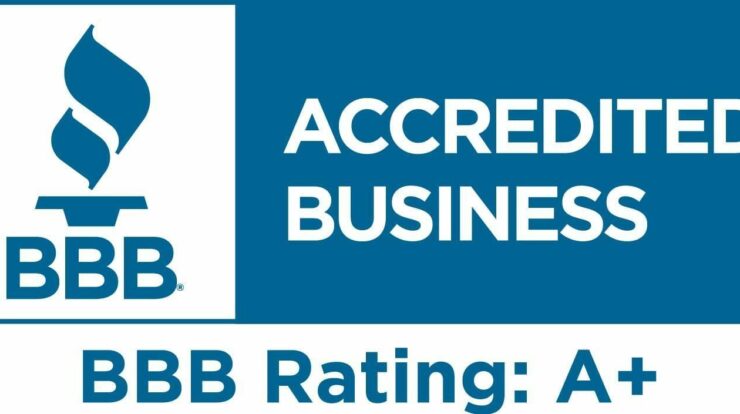
Since its inception in 1912, the Better Business Bureau (BBB) has been a go-to resource for assessing a company’s performance and dependability. If you’re looking for a new wireless service provider or a local plumber, for example, you should look into the Better Business Bureau profiles of the companies you’re considering. If you want to give money to a charity, you should do the same thing to make sure it is real.
But how reliable is the rating organization? While the bureau has assisted millions of consumers in identifying untrustworthy service providers, it has also been revealed that it is not without flaws. Here’s a closer look at how the Better Business Bureau (BBB) works—and where it falls short.
Key Lessons
- The Better Business Bureau’s mission is to promote “marketplace trust,” which it accomplishes in part by grading businesses on their trustworthiness and performance and acting as a go-between when customers have complaints.
- The bureau’s letter grade for a business is based on a number of things, such as how the company has handled customer complaints in the past.
- The BBB has long portrayed itself as an unbiased arbiter of good business practices, but critics argue that accepting funds from member businesses creates a conflict of interest.
The inside scoop on the Better Business Bureau
According to its website, the Better Business Bureau (BBB) is a nonprofit membership organization with chapters across North America that is “focused on advancing marketplace trust.” It accomplishes this mission primarily through two functions: rating businesses on their dependability and performance; and assisting in the resolution of consumer complaints. The bureau also provides consumer education and a number of programs to assist businesses in implementing best practices.
The Better Business Bureau generates revenue through corporate memberships, allowing it to provide consumers with free access to its directory of business profiles. Individuals can use its website to look up specific businesses or browse providers in a specific industry.
Each profile includes basic information about the company, such as its address, phone number, and years in business. It also displays the company’s Better Business Bureau (BBB) grade (from “A” to “F”), as well as customer reviews and information about consumer complaints.
Businesses that are accredited vs. non-accredited
Businesses can choose to become “accredited,” which requires them to “support the mission and vision of the better Business Bureau (BBB).” While the BBB website provides information on both accredited and non-accredited businesses, the accredited status is prominently displayed on the website and is frequently used for marketing purposes by businesses.
Accredited businesses contribute significantly to the organization’s revenue. Businesses pay anywhere from a few hundred dollars for a few employees to more than $11,000 for 2,000 or more employees.
In addition, the bureau charges member organizations for using the accreditation in online and print advertising. In addition to those fees, businesses must maintain a “B” or higher grade, handle consumer complaints in a satisfactory manner, and demonstrate truthful advertising practices in order to remain accredited.
Ratings and How They Work:
For many customers, the Better Business Bureau’s letter grades are an important factor in deciding whether to do business with a particular company or look elsewhere. These ratings are based on a number of factors, with some components weighing more heavily than others.
Each company receives or loses points based on its performance in 13 different categories, with a maximum possible score of 100. The presence of any unresolved and unanswered complaints against the business, the type of business, failure to honor mediation or arbitration, and the presence of any government actions against the company are the most heavily weighted factors.
In turn, the numerical score is converted to a letter grade. A score of 97 to 100, for example, would result in an “A+,” a score of 94 to 96.99 in an “A,” and a score of 90 to 93.99 in an “A-. According to the bureau’s website, “Better Business Bureau ratings are not a guarantee of a business’s reliability or performance.” “Better Business Bureau (BBB) recommends that consumers consider a company’s BBB rating in addition to all other available information about the company.”
While these ratings are intended to assist users in making better consumer decisions, the BBB does not recommend specific businesses. The bureau says that this policy is meant to keep “the public’s trust in our fairness.”
Resolution of Disputes
Another important function of the Better Business Bureau is to act as a mediator in disputes between consumers and businesses. When viewing a company’s BBB profile online, consumers can begin the process by clicking the “File a Complaint” link. Alternatively, they can write to their local BBB chapter with the pertinent case details.
To keep their accreditation, businesses must respond to complaints in a satisfactory manner. Responding to complaints is entirely voluntary for non-accredited entities. However, doing so helps them improve their Better Business Bureau rating, which can be a strong incentive in and of itself.
When a customer files a complaint, the company is required to respond within 14 days. If the initial request does not elicit a response, the bureau sends the company a second notice. When a business responds to a complaint or doesn’t respond, the Better Business Bureau lets customers know.
Of course, even if the company responds to the complaint, it isn’t always satisfactory to the customer. In that case, the consumer has the option of requesting a second response. Depending on the situation, the BBB may suggest either mediation or arbitration as a way to settle the dispute. When the BBB closes a complaint, it gives it one of five statuses: Resolved, Answered, Unresolved, Unanswered, or Unpursueable (if the BBB can’t find the business).
Complaints about the BBB
When a rating organization, such as the Better Business Bureau, receives revenue primarily from the businesses it grades, critics argue that there is an inherent conflict of interest.
In theory, such membership fees should have no effect on the rating that it assigns to a specific company. But whether this is always the case is debatable. For example, an ABC 20/20 investigation from 2010 found that paying members were more likely to get “A” grades, while nonmembers were often given lower grades.
In 2015, CNN did an investigation and found that about 100 businesses had high BBB ratings even though the government had taken serious actions against them. The bureau says it has profiles on more than 5 million businesses all over the country.
One prominent example is HCR Manorcare, a company that operates hundreds of long-term care facilities across the United States. Despite facing a federal indictment for large-scale Medicare fraud, the company was able to obtain an “A+” rating from the BBB. According to the CNN report, consumer lawsuits are not even considered when rating companies. The watchdog group, for its part, admits that nonmember businesses are not as closely scrutinized as those that pay for accreditation. According to the bureau’s website, “BBB does not routinely check required competency licensing and government actions for businesses that do not seek BBB accreditation,” according to the bureau’s website, “although BBB learns of these matters in some cases through its marketplace research.”
In conclusion,
Consumers now have a plethora of options for conducting company research, ranging from Yelp to Google Reviews to Angie’s List (owned by IAC, Investopedia’s corporate parent). While each of these can be beneficial, none is completely effective in identifying unscrupulous or underperforming businesses.
This also applies to Better Business Bureau ratings. While the BBB’s free profiles are widely available, the bureau has been accused of favoring companies that pay membership fees in its grading system. When making large purchases or hiring for a large job, consumers often find that using multiple research tools is the best solution.
Frequently Asked Questions
What exactly does the BBB do?
The Better Business Bureau (BBB) is a private organization that provides information to the public about businesses and charities. It also handles customer complaints about businesses.
How do you use the Better Business Bureau to check something?
Go to BBB.org and type in the company name and location (if known) in the search box. You can also contact the local BBB office that serves your area.
How do I know if a company is legitimate?
Examine the company’s address, phone number, and website to ensure that they appear legitimate. Be aware, however, that it is relatively simple for a company to obtain a phoney address, phone number, and website. If possible, go to the company’s physical location and speak with the employees.
Does the BBB complaint have any effect?
A complaint with the Better Business Bureau is one viable option (BBB). Every year, the BBB assists consumers in resolving disputes involving sales, contracts, customer service, warranties, billings, and refunds. It will accept complaints even if the company that has harmed you is not a member of the Better Business Bureau.





